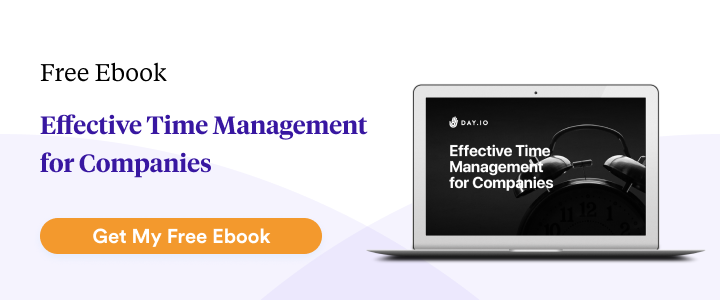It’s no secret that hiring is one of the most difficult tasks out there for any business. Who do you hire? What qualifications do you deem valuable? What specific skill-set do you require? How many new employees do you really need?
There are a number of questions that come up when businesses are looking to hire, but one of the most important is what kind of hiring process to use. There are a few different options available, but skills-based hiring is becoming an increasingly popular choice for many companies.
So, what exactly is skills-based hiring? And how can it benefit your business?
In this article, we will take a closer look at what skills-based hiring is, discuss best practices associated with it, and look through some of its benefits and drawbacks.
Let’s get started!
What Is Skills-based Hiring?
A lot of people have degrees, but do they all have the skills required to benefit your business and add value? That’s where skills-based hiring comes in.
Skills-based hiring is a type of hiring that focuses on an applicant’s specific skills and abilities, rather than their educational background or work experience.
This type of hiring is becoming more popular as businesses are starting to realize that degrees aren’t always the best indicator of someone’s ability to do a job well.
Imagine a situation where you’re hiring for a customer service position. In this role, excellent communication skills are key.
Would you rather hire someone who has a degree in communications but little to no customer service experience? Or would you rather hire someone with no degree but years of experience working in customer service?
If you’re like most businesses, you would probably choose the latter option. And that’s because skills-based hiring is all about finding the candidates with the right skills for the job, regardless of their background.
The example of the customer service position encapsulates the very essence of skills-based hiring: you hire based on competencies, not credentials.

Is Skills-Based Hiring On The Rise?
A recent study conducted by the labor-market data company Emsi Burning Glass found that skills-based hiring is on the rise. The study, which surveyed over 51 million jobs posted between 2017 and 2020, found that businesses reduced degree requirements for 46% of middle-skilled positions and 31% of high-skilled positions.
The trend appears to be most prominent in knowledge-intensive industries such as professional services, finance, and healthcare. In these industries, an estimated 60% of firms reported using skills-based hiring practices for at least some of their job openings.
The study also found that skills-based hiring is more common in larger businesses. Accenture and IBM for example had only 43% and 29% of their respective IT job postings containing a degree requirement.
So, it’s clear that skills-based hiring is becoming increasingly popular among businesses of all sizes across a variety of industries. But what exactly are the benefits and drawbacks associated with this type of hiring? Let’s take a closer look.

5 Advantages Of Skills-based Hiring
Now we know that skills-based hiring is on the rise throughout the corporate world, but why is this the case? Here are the 5 main advantages of companies engaging in skills-based hiring:
1. It allows businesses to tap into a wider pool of talent
When companies focus on an applicant’s skills and abilities, they open up the talent pool to a whole new group of people. People without degrees or traditional work experience can still be excellent candidates if they have the right skills for the job.
This is beneficial for businesses because it allows them to find the very best candidates, regardless of their background or credentials in the past.
2. It helps businesses save time and money
The traditional hiring process can be long, drawn out, and expensive. With skills-based hiring, businesses can save time and money by identifying the specific skills they need and only interviewing candidates who meet those criteria.
This type of hiring is also less reliant on things like resumes (which can often be misleading) and instead focuses on an applicant’s ability to actually do the job.
3. It leads to a better employee retention rate
When employees are hired based on their skills, they tend to be more engaged in their work and stay with the company for longer. This is because they feel like they are valued for their abilities and are more likely to find fulfillment in their work.
In contrast, employees who are hired based on things like their degree or past experience often end up feeling like they’re not using their full potential, leading to a higher turnover rate.
4. It reduces unconscious bias in the hiring process
Unconscious bias is a well-documented phenomenon in which people tend to favor those who are like them in some way (e.g., race, gender, etc.). This can often lead to companies hiring a less diverse workforce than they otherwise would.
Skills-based hiring helps reduce unconscious bias by focusing on an applicant’s skills and abilities, rather than their personal characteristics.
5. It sets clear expectations for employees from the start
When employees are hired based on their skills, they know exactly what is expected of them from the start. This clarity can lead to a more productive and motivated workforce overall.
However, when employees are hired based on things like their degree or past experience, they often have unrealistic expectations about their job and end up being disappointed when those expectations are not met.
Consider a situation where a recent college graduate with no job experience is competing against an experienced professional for the same position. The college graduate likely has no idea what to expect in the role, while the experienced professional does.
This can lead to frustration on both sides — the college graduate may feel like they’re in over their head, while the experienced professional may feel like they’re being underutilized.
With skills-based hiring, both sides know exactly what is expected of them and can be more productive from the start.

5 Disadvantages of Skills-based Hiring
We’ve gathered that skills-based hiring has its fair share of advantages, but there are also some drawbacks associated with it. Let’s look at some of these in further detail:
1. Candidates with a more traditional education may be overlooked
In a skills-based hiring process, candidates who may have went to very good schools or have extensive experience in their field could potentially be overlooked in favor of someone with the right skill-set but less experience.
In many industries, experience counts for a lot. Overlooking this can be a risky maneuver. While this may not always be the case, it’s something to keep in mind.
2. It can be difficult to assess whether or not a candidate has the required skills
This is perhaps one of the biggest drawbacks to skills-based hiring. When you’re assessing a candidate’s skill-set, it can be difficult to accurately gauge whether or not they truly have the required skills.
This can often lead to businesses hiring employees who are not actually qualified for the job.
3. It can be time-consuming
The process of skills-based hiring can often be quite time-consuming, especially if you’re looking for a specific skill-set. This can be a problem for businesses who are short-staffed or are in need of someone immediately.
4. You may miss out on qualified candidates
In some cases, skills-based hiring can lead to businesses missing out on qualified candidates. This is often because the candidate may not have the specific skill-set that the business is looking for, but they could still be a great fit for the company.
Degrees and credentials can act as indicators proving that a candidate is able to learn new skills. Overlooking candidates that have a lot of potential in favour of skilled candidates with little long-term potential could be a bad move for companies.
5. It can be costly
Another potential drawback of skills-based hiring is that it can often be quite costly. This is because businesses will often have to pay for training or certifications in order to ensure that their employees have the required skills.
If you’re working for a client-based business, your client may want people working on the task to have a certain set of credentials, even though they might be able to get the job done fine. This could mean spending a lot of money ensuring team members are well-qualified before working on a certain client.

Skills-based Hiring: Dos and Don’ts
When it comes to skills-based hiring, there are a few things you should keep in mind in order to make the most of this process.
Let’s discuss some key dos and don’ts when it comes to skills-based hiring:
Do:
- Keep the job description clear and concise. Be sure to list out the specific skills and qualifications that are required for the role.
- Use a skills assessment test as part of your screening process. This will help you narrow down your candidate pool to those who have the necessary skills for the job.
- Make sure you have a good understanding of what your company’s core values are. This will help you identify whether or not a candidate’s personal values align with your company’s.

Don’t:
- Don’t rely solely on a resume. A resume can tell you a lot about a person’s qualifications, but it doesn’t always give the whole picture.
- Don’t make assumptions about a candidate’s skills. Just because someone went to a certain school or has a certain degree doesn’t mean they have the required skills for the job.
- Don’t forget to interview candidates. Even if they pass the skills assessment test, it’s important to get to know them on a personal level to see if they’re a good fit for your company (remember to give feedback at the end!).

Final Thoughts
Skills-based hiring is rising up the ranks for a reason. Whether your company has never thought about this form of hiring before, or if it’s something you’ve been considering for a while – weigh up the benefits and drawbacks detailed above to determine whether it’s for you.
In any case, there’s no harm in giving it a shot. Who knows? It might just increase the quality of your employees and the size of your bottom line!
